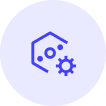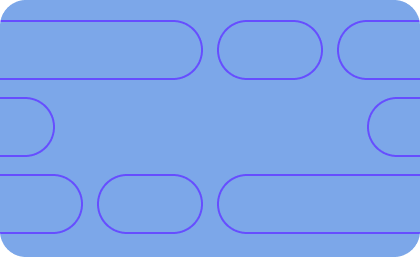Unify All of Your AI Infrastructure



Scale to any backend, on any cloud, with a single line of code
import covalent as ct
# Ship your task to any device
@ct.electron("awsbatch")
def training(model,X,y):
return model.train(X,y)
# Combine them however you want !
@ct.lattice
def compare(X,y):
model=...
c_model=training(model,X,y)
return plot_performance(c_model,q_model)
run_id=ct.dispatch(compare)(X_train,y_train)
How it Works
Construct
- Decorate any python function to convert it into a task / workflow
- Work locally and with the IDE of your choice, including Jupyter notebooks
- Workflows can be cross-language and cross-platform
import covalent as ct
@ct.electron
def spacer(word): return word+" "
@ct.electron
def join(*a): return "".join(a)
@ct.lattice
def workflow(name):
return join(spacer("hello"),spacer(name)) +" !!"
id=ct.dispatch(workflow)(name="Shore")
ct.get_result(id,wait=True)
Execute
- Prototype your workflows locally and then run them anywhere
- Switch between hardware types and clouds with a single line of code
- Out of the box cloud bursting capabilities
Monitor
- Visually engage with your workflows directly with Covalent’s browser-based UI
- Get live status updates for tasks, workflows and hardware
Collect Results
- Automatically add checkpoints to your workflows
- Keep track of and organize your experiments using the Covalent UI
- Automatically package experiments that can easily be shared/reproduced
Features
Rapid Deployment
Seamlessly transition from experiments to production within Covalent
API for High Compute
Expose functions and solvers from generative AI to quantum using Covalent
Intuitive Monitoring
Oversee workflows across clouds with real-time tracking via a user-friendly UI
Unified Cloud Computing
Switch between cloud providers and integrate diverse computing paradigms
Adaptive Workflows
Real-time workflow adjustments with dynamic resource allocation
Seamless Orchestration
From local prototypes to multi-cloud applications, managed with ease
Industry & Vertical Agnostic
Machine Learning
Rapidly prototype computationally intensive ML models, and seamlessly scale to any hardware or cloud – all from your Python environment.
Learn MoreBio & Life Sciences
Prototype and scale workflows from image analysis to drug discovery across multiple cloud platforms effortlessly from a Jupyter notebook
Learn More
Chemistry
Build dynamic workflows that scale with the size of molecular systems and flexibly match software to hardware resources.
Learn MoreQuantum Computing
Compare emerging quantum platforms and algorithms with ease. Covalent integrates quantum into the broader compute ecosystem and lowers the barrier to entry for quantum-curious organizations
Learn MoreScientific Computing
Rapidly iterate over models, collect and organize large datasets, and collaborate with other scientists. Covalent reduces the time from hypothesis to publication by eliminating operational overheads.
Learn More
HPC
Deploy and dynamically balance workloads across federated HPC clusters without needing to interact with individual file systems or schedulers.
Learn More





